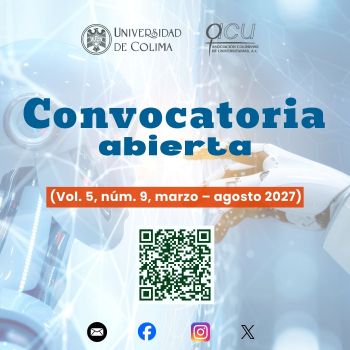The Decentering of the Phallus in Poems of Insomnia (after Wine)
by Carmen Cecilia Suárez
Keywords:
sexual difference, poetics of the caress, other bisexuality, decentering of the phallus, partialityAbstract
In this article, I reflect on the processes of decentering of the phallus as a totalizing code of desire and corporeity in Poems of Insomnia (After Wine) by Carmen Cecilia Suárez (2004). Resorting to some ideas of “The Lesbian Phallus and The Morphological Imaginary” of Bodies That Matter by Judith Butler (2002), I expose how the signifier possesses the ability to symbolize various parts of the bodies and, in consequence, I show the decoding processes of the partial, decentered, and substitutable character of the phallus that deterritorializes its naturalized link with the masculine morphology; to this tenor, I emphasize the poet’s preference on partiality to represent the connection between the feminine and masculine bodies. From the perspective of the representability of sexual difference, my analysis endorses the caress’s poetics of Luce Irigaray (1993) that she exposes in The Fecundity of the Caress of An Ethics of Sexual Difference, and the notion of the couple as a metaphor of the sexual difference that she develops in “The Universal as Mediation” of Sexes and Genealogies. Likewise, it endorses the concepts of feminine writing and the other bisexuality that Hélène Cixous (1976, 1981, and 1986) presents in “The Laugh or Medusa”, “Castration or Decapitation?”, and “Sorties” of The Newly Born Woman. As a result, I show the poetic writing capacity to signify in ways that exceed the appropriate structural place in the
symbolic and reconfigure the woman’s status as the subject of desire and speech.
Downloads
Metrics
References
Balza, I. (2011). Ética corporal y sexuación: plasticidad y fluidez en el sujeto del postfeminismo. En: Estudios Feministas, 19 (1), pp. 21-33.
Benjamin, J (1986 [1981]). A Desire of One’s Own. Psychoanalytic Feminism and Intersubjective Space. En: T. de Lauretis (ed.), Feminist Studies/Critical Studies (pp. 78-101). Bloomington, Indiana: Indiana University Press.
Birulés, F., y Fuster Á. L. (2010). Prólogo. En: L. Irigaray, Ética de la diferencia sexual (pp. 13-28). Castellón: Ediciones Ellago.
Braidotti, R. (2004). Feminismo, diferencia sexual y subjetividad nómade. Barcelona, España: Gedisa.
Butler, J. (2001 [1990]). El género en disputa: El feminismo y la subversión de la identidad. México: Paidós.
Butler, J. (2002 [1993]). El falo lesbiano y el imaginario morfológico. En: J. Butler, Cuerpos que importan: sobre los límites materiales y discursivos del sexo (pp. 95-142). New York. EE. UU.: Routledge.
Cixous, H. (1986 [1975]). Sorties. En: H. Cixous, The Newly Born Woman (pp. 63—132). Minnesota y Manchester, EE. UU.: University of Minnesota Press y Manchester University Press.
Cixous, H. (1981 [1976]). Castration or Decapitation? Trad. Ennete Kuhn. En: Journal of Women in Culture and Society, 1 (7), pp. 36-40.
Cixous, H. (1977). La Venue a l’écriture. París, Francia: UGE.
Cixous, H. (1976 [1975]). The Laugh of Medusa. Trad. Keith Cohen and Paula Cohen. En: Journal of Women in Culture and Society, 4 (1), pp. 875-893.
Chisholm, D (1994). Irigaray’s Hysteria. En: C. Burke, N. Schor y M. Whitford (eds.), Engaging with Irigaray: Feminist Philosophy and Modern European Thought (pp. 263-283). New York, EE. UU.: Columbia University Press.
Flax, J. (1995). Psicoanálisis y feminismo: Pensamientos fragmentarios. Madrid: Cátedra.
Guerra, L. (2007). Mujer y palabra: Fundamentos teóricos de la crítica feminista. México D.F.: UNAM, Programa Universitario de Estudios de Género.
Haraway, D. J. (1995 [1991]). Ciencia, cyborgs y mujeres: La reinvención de la naturaleza. Madrid, España: Cátedra.
Irigaray, L (2007) [1974]). Espéculo de la otra mujer, Madrid, España: Akal.
Irigaray, L. (1993b [1987]). The Universal as Mediation. En L. Irigaray, Sexes and Genealogies (pp. 127-149). New York, EE. UU.: Columbia University Press.
Irigaray, L. (1993a [1984]). The Fecundity of a Caress. En: L. Irigaray, Ethics of Sexual Difference (pp. 125-149). Ithaca, NY: Cornell University Press.
Irigaray, L. (1992). Yo, tú, nosotras. Madrid, España: Cátedra.
Irigaray, L (1985) [1980]. El cuerpo a cuerpo con la madre. Trad. Mireia Bofill y Anna Carvallo. En: El cuerpo a cuerpo con la madre. El otro género de la naturaleza. Otro modo de sentir (pp. 5-18). Barcelona, España: la Sal, edicions de les dones.
Irigaray, L. (1985 [1977]). This Sex Which Is Not One. Ithaca, NY: Cornell University Press.
Kristeva, J. (1974). La revolution du langage poétique. París, Francia: Seuil.
Lauretis, T de. (2000). Tecnologías del género. Trad. María Echániz Sans. En: Cuadernos Inacabados, número 35 (pp. 33-69). Madrid, España: Ediciones horas y HORAS.
Mizhari, I. (1995). La poesía erótica de Laura Victoria. En: M. M. Jaramillo; B. Osorio; A. I. Robledo (comp.), Literatura y diferencia (pp. 114-130). Medellín y Bogotá, Colombia: Editorial Universidad de Antioquia y Ediciones Uniandes.
Moi, T. (1988). Teoría literaria feminista. Madrid, España: Cátedra.
Rich, A. (1976). Of Woman Born: Motherhood as Experience and Institution. New York, NY: W.W. Norton.
Rozo-Moorhouse, T (1995). Feminismo, conjuro y erotismo en tres poetas contemporáneas colombianas: Guiomar Cuesta Escobar, Amparo Romero Vásquez y Mónica Gontovnik. En M. M. Jaramillo; B. Osorio; A. I. Robledo (comp.), Literatura y diferencia (pp. 103-129). Medellín y Bogotá, Colombia: Editorial Universidad de Antioquia y Ediciones Uniandes.
Suárez, C. C. (2004). Poemas del insomnio (después del vino). Bogotá: La serpiente Emplumada.
Whitford, M. (1991). The Irigaray Reader. Oxford, UK and Cambridge, USA: Blackwell Publishers.
Sitios Web:
Suniga, N. C. (2015). El falo en disputa. Judith Butler, lectura crítica de Jacques Lacan. En: Diferencia(s), Revista de Teoría Social Contemporánea [en línea], 1, pp. 64-86. Consultado el 15 de septiembre de 2019. Disponible en www.conicet.gov.ar/handle/11336/70330?show=full.
Downloads
Published
How to Cite
Issue
Section
License

This work is licensed under a Creative Commons Attribution-NonCommercial-ShareAlike 4.0 International License.
GénEroos Magazine allows you to share, copy and redistribute the material in any medium or format; adapt, remix, transform and build upon the material, crediting the work appropriately and providing a link to the licence, indicating if changes have been made.








